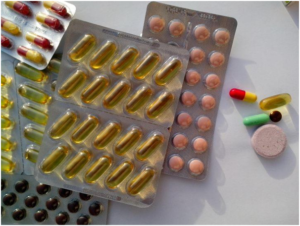The essentials when it comes to Vitamins and mineral supplements

It’s a well-known and accepted fact that a diet consisting of plenty of fruit and vegetables, whole grains and lean protein sources like fish is best for you, as these foods are rich in vitamins, minerals, and fibre.

These foods provide us with vital vitamins such as vitamins A and C, which act as antioxidants and improve our immune system, along with calcium, which aids bone strength, and fibre, which contributes towards our digestive health.
When Food Isn’t Enough
It’s obviously extremely important that we look after our bodies, and there is a range of supplements available that can help us to ensure that our bodies receive exactly what they need. It’s important, however, to maintain a healthy diet while taking supplements, as replacing an orange with a vitamin C tablet would mean that you missed out on all of the other nutrients on offer.
Vitamin and mineral supplements are designed to complement your diet, not to replace the foods that benefit you, and many people see significant improvements in their health and wellbeing by allowing the two to go hand in hand.
In today’s world, anyone who exercises regularly or takes part in sport is at risk of having a lack of iron in their system, due to the way that iron levels are depleted during these activities. They are able, though, to combat this by eating foods high in iron and by taking a daily iron supplement, which they can obtain at their local chemists. The local chemists will have to keep these organized and in order to make sure they stay in date and for the right patients. It is important for them to keep stock control as to when it comes to medication you can’t get this wrong. A good way for any business to keep their stock arranged properly is with Lin Bins which can be sourced from websites including www.rackzone.ie/bin-racks.
Changing Lives, Even Before Birth!
There has also been an increase in supplement use by pregnant women, who are worried about their Folic acid intake, as it is incredibly difficult to get the right amount of folic acid required from food alone.
Usually found in fruit, vegetables, and whole grain, Folic acid is seen as a vitally important part of a pregnant woman’s dietary intake. Taking a vitamin that is specially formulated for pregnant women, both before and during pregnancy, and containing the recommended amount of Folic acid (400 micrograms), can help to prevent birth defects.
Along with the above, Public Health England recently issued new guidelines which indicate that everyone in the UK could benefit from taking vitamin D supplements to protect bone and muscle health, especially in the winter months.



